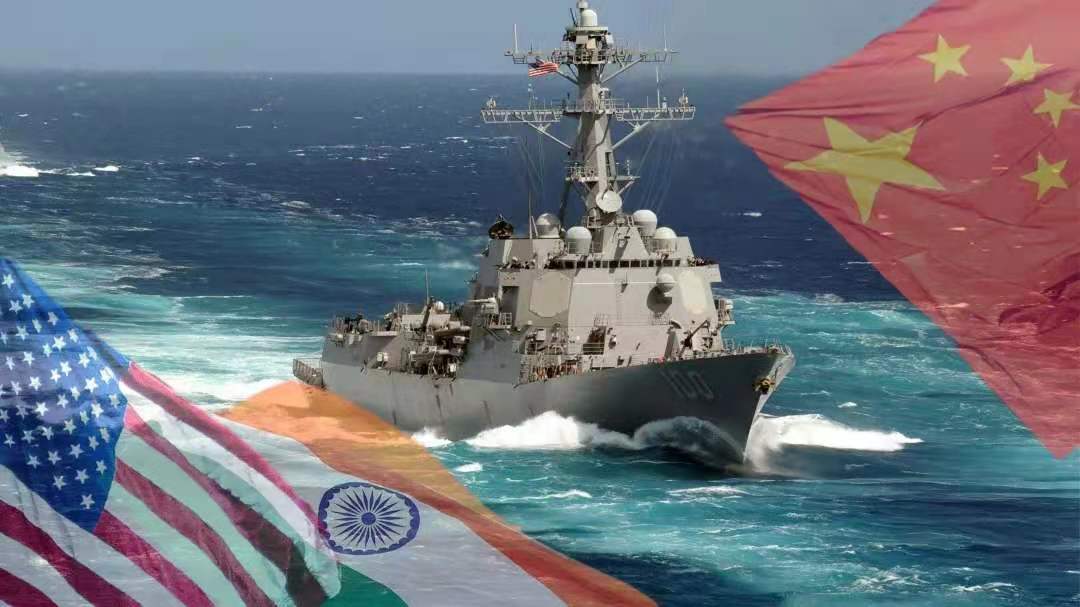Andrew Sheng, Distinguished Fellow at the Asia Global Institute at the University of Hong Kong
Xiao Geng, Director of Institute of Policy and Practice at Shenzhen Finance Institute, Chinese University of Hong Kong
Jun 26, 2021
In their latest communiqué, NATO leaders declared that China presents “systemic challenges to the rules-based international order.” The response from China’s mission to the European Union was clear: “We will not present a ‘systemic challenge’ to anyone, but if someone wants to pose a ‘systemic challenge’ to us, we will not remain indifferent.” Such a tit-for-tat rhetoric is unnecessary, and most of the world’s population probably does not want it to escalate. Yet escalation is becoming more likely every day.
Zhang Yun, Professor, School of International Relations, Nanjing University
Jun 24, 2021
China needs to a better job in responding to Western scolding. It may need to express discontent, or even anger, from time to time. But mostly it must be able to deliver a positive, vivid and appealing Chinese narrative.

He Yafei, Former Vice Minister of Foreign Affairs
Jun 21, 2021
China, the United States and India have different strategic goals and so their interests conflict — so much so that strategic suspicion has fostered a negative kind of competition in which the other side is labeled as a primary rival. Of course there is a way to break the impasse. But it boils down to whether the parties really want to.
Zhang Yun, Professor, School of International Relations, Nanjing University
May 28, 2021
The Biden administration is pushing a multilateralism based on shared ideals, alliances and partnerships. For the United States, only homogeneous countries can ensure quality and efficiency. But the differences between Chinese and U.S. understandings go beyond diplomatic practice. There are theoretical differences as well.
Nong Hong, Executive Director, Institute for China-America Studies; Senior Fellow, Beijing Club for International Dialogue
May 17, 2021
When it comes to participation in international organizations, the objectives of the major powers are not entirely clear. Will there be competition for influence or can China and the United States develop opportunities for cooperation? Only the latter will promote a healthy model of global governance.
Steven Vogel, Professor, University of California, Berkeley
Apr 23, 2021
On behalf of my family, I would like to thank the Chinese People's Association for Friendship with Foreign Countries and the Institute for Global Cooperation an
Zhang Monan, Deputy Director of Institute of American and European Studies, CCIEE
Apr 20, 2021
While the agreement would help combat some long-standing global problems, it would also curtail many countries’ competitiveness and undermine their tax sovereignty in the long run.
Leonardo Dinic, Expert in Geopolitics and International Business, the Future of Work, and Emerging Technologies
Apr 17, 2021
While President Biden declares to U.S. allies that 'America is back,' democracies worldwide find themselves unsure how to emerge from the coronavirus pandemic.

Li Zheng, Assistant Research Processor, China Institutes of Contemporary International Relations
Mar 10, 2021
A variety of technical paths and the use of multiple treatments in the global population provide the best opportunity for quick, widespread success. Vaccine nationalism should be avoided, as it only slows progress.

Cheng Li, Director, John L. Thornton China Center, The Brookings Institution
Ryan McElveen, Associate Director, John L. Thornton China Center, Brookings Institution
Mar 02, 2021
The volatile state of U.S.-China relations has only hindered progress towards ending the COVID-19 pandemic. There’s little question that if the two countries were to join forces, a safer world would be within reach.
Back to Top

- China-US Focus builds trust and understanding between the U.S. and China through open dialogue among thought leaders.
- Our Offerings
- Topics
- Videos
- Podcasts
- Columnists
- Research Reports
- Focus Digest
- Stay Connected
-
Thanks for signing up!
- Get the latest stories from China-US Focus weekly.